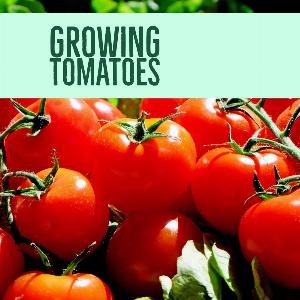Add plenty of organic material, such as Nutri-Mulch, to the soil when you plant. Fertilize regularly with a high phosphate fertilizer like 16-16-16. For really spectacular tomatoes, dissolve one tablespoon of Epsom Salts in a gallon of water and pour around the plant once a week. Tomatoes should be watered deeply on a regular schedule, soaked to a depth of eighteen to twenty inches, and watered again when the top two or three inches of soil are dry. Maintaining even moisture will help prevent cracking on the stem end of nearly ripe tomatoes, caused by allowing the tomato plant to dry out too much, and then watering heavily just as the fruit is about to ripen. Black spots on the blossom end of tomatoes are caused by a lack of calcium and can be easily treated with Ferti-lome Yield Booster, which contains calcium. Black Spot, also called Blossom End Rot, can be brought on by not enough calcium in the soil, sprinkling, too much nitrogen, or by cultivating too closely. Poor fruit set can be caused by not enough sunlight, not enough water, or a fertilizer too high in nitrogen. Manure, unless it is a year old, dry, and used sparingly, has too much nitrogen in it to be good for tomatoes. Tomatoes require at least eight hours of sunlight a day, and should be kept well picked to encourage high yields. Don’t plant them in the same place two years in a row, and don’t plant them where you had potatoes, eggplant, or peppers growing the last year. Tomatoes love heat. Mulching helps conserve moisture and keeps the soil temperature more constant. Black plastic also heats up the soil. An old tire placed around the plant retains heat as well, and if you fill the tire with rocks, they will absorb heat during the day and give it off at night. If your tomatoes won’t ripen, you may have been keeping them too wet. Stop watering and let them dry out. Tomatoes also do best in acidic soil. Since the soil in this area is mostly alkaline, remedy this by using Hi-Yield Iron Plus Soil Acidifier. Tilling in pine needles or leaf litter is also an excellent idea. Bringing down the ph of the soil also helps guard against soil-borne wilt diseases.




